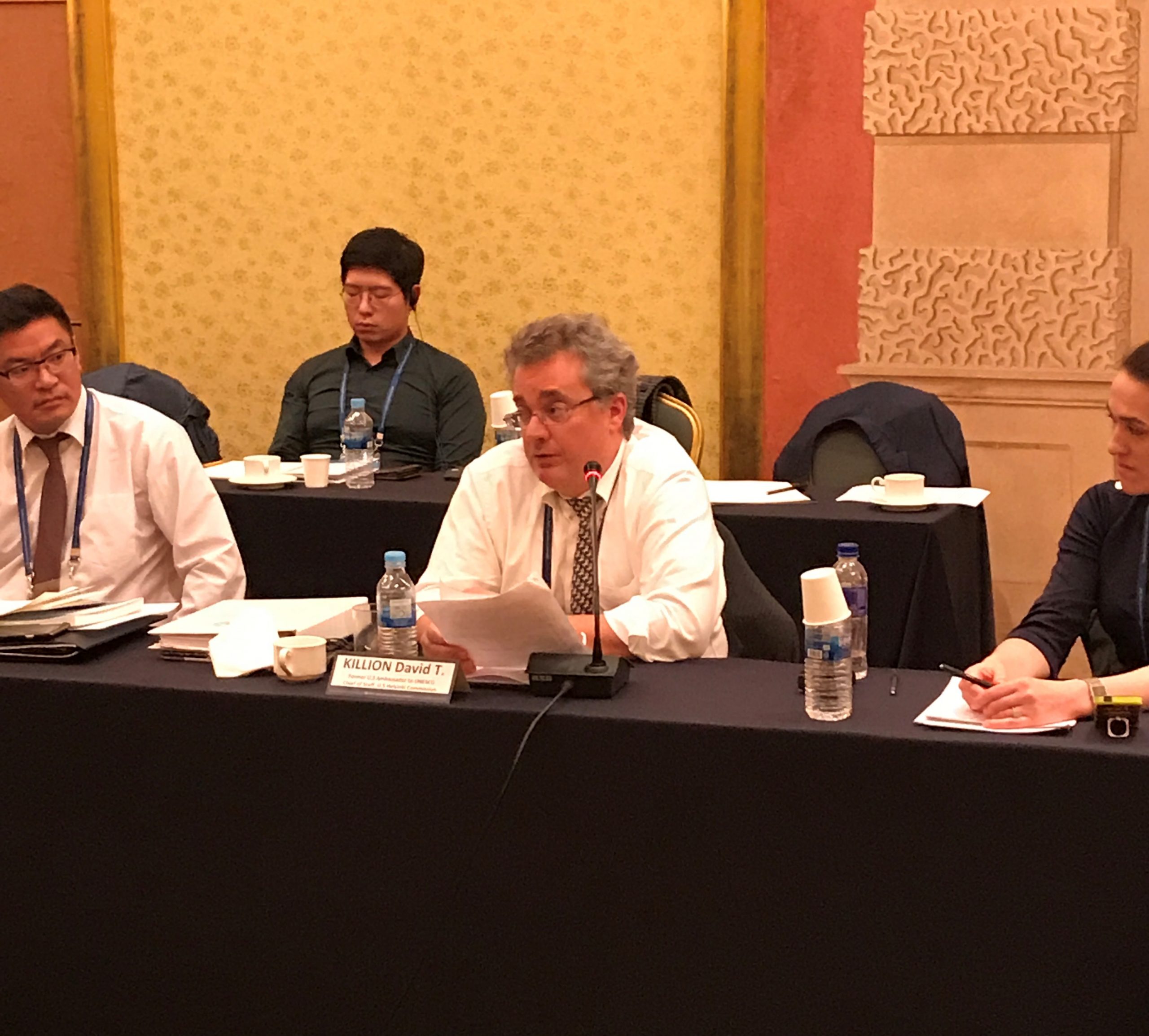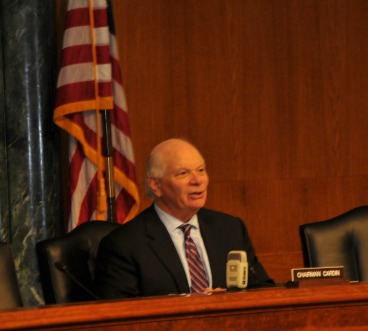Distinguished dignitaries and guests, good afternoon and welcome. Thank you all for joining us today. Thank you in particular to our South Korean hosts and to the Sejong Institute for putting this conference together. I am here representing the U.S. Helsinki Commission, an independent Commission of the U.S. Congress. The Commission monitors compliance with commitments made by Organization for Security and Cooperation in Europe (OSCE) participating states, which number fifty-seven countries throughout the Atlantic-Eurasian region. The commitments are comprehensive in nature and range from military security to anticorruption to human rights.
By and large, the Northeast Asian region has seen over the last twenty years an unprecedented period of security and stability. This peace has brought great economic prosperity to the Northeast Asian region as well as one of the most intense periods of growth in human history. However, this peace and prosperity has come under grave threat.
Today, the livelihoods of citizens in the region are put in jeopardy by environmental challenges and transnational threats such as terrorism, organized crime, and money laundering that know no borders. The region also has experienced a significant arms buildup and an increase in the tendency towards escalation during crises. For example, what were once diplomatic disputes over uninhabited islands in the Pacific have today become flashpoints eliciting the deployment of military forces. Finally, amidst all these worrying trends in the region, there continues the reckless provocation of the rogue regime in Pyongyang, whose nuclear ambitions threaten the lives of millions of citizens within the region.
Indeed, the main concern today is North Korea. Obviously, the military threat of the country is most pressing, but the human rights and economic situation within North Korea are also dismal. The people are some of the most oppressed in the world. Their economic situation is near the bottom of the world as well, with many being literally starved to death. Gulags house countless prisoners who undergo enormous suffering.
We can be sure that the challenges that face this region will continue to mount in the near-term. Still, the nations of this region do not need to sit idly by in the face of this rising tide of uncertainty. In the Atlantic-Eurasian region, nations have faced similar challenges, and responded by establishing institutions through the Helsinki process to serve as a platform for dialogue and consensus, while offering mechanisms of de-escalation during times of crisis. The Helsinki process can serve as a model, or at the very least a useful example, for the nations of East Asia to move purposefully towards peace and collective security.
I have had the privilege of serving as Chief of Staff of the U.S. Helsinki Commission and have seen firsthand the tremendous progress that can be made through engagement. The original language in the documents that served as the foundation for the discussions in the 1970s was quite modest, and, frankly, at the time, not considered groundbreaking. The Helsinki Final Act was a document deeply rooted in its own time and space, and the world in 1975 looked radically different than our globalized one does today.
But the Helsinki process created an opportunity to change things; it committed historical adversaries to engage; it established norms based on consensus; and it gave countless people hope for the future. Over its 42-year history, the Helsinki process has evolved, addressed new challenges, established new norms, and welcomed new members. As a result, the Helsinki process has made a tangible difference in the maintenance of peace and collective security from Vancouver to Vladivostok.
Given the recent series of North Korean provocations, the need to address the crisis that this has created may mean that now is not the appropriate time to implement this vision. Nevertheless, the groundwork can be laid so as to be prepared when a policy window opens.
This approach could begin with a modest agenda agreed to by consensus. Consensus decision-making is an important piece of the puzzle because it helps to build trust. If actors do not trust one another’s intentions, as would clearly be the case for any Helsinki-inspired Northeast Asian security process, then consensus decision-making is the only way to go. You cannot get anything accomplished other than by consensus.
Another important takeaway from the Helsinki process is that any such process in any region of the world be based on universal principles. In the Helsinki case, this expressed itself most clearly in what we call the “Helsinki Decalogue,” which includes:
- Sovereign equality, respect for the rights inherent in sovereignty
- Refraining from the threat or use of force
- Inviolability of frontiers
- Territorial integrity of States
- Peaceful settlement of disputes
- Non-intervention in internal affairs
- Respect for human rights and fundamental freedoms, including the freedom of thought, conscience, religion or belief
- Equal rights and self-determination of peoples
- Co-operation among States
- Fulfillment in good faith of obligations under international law
Finally, the more diverse the membership, the more buy-in can be expected. One of the unique things about the Helsinki process was its wide membership, which, at its founding at the height of the Cold War, included not only the United States and the Soviet Union, but thirty-three other European states in addition to Mediterranean observer countries. Wide membership enables any process to avoid the impression of favoring larger states over smaller ones.
Hopefully, we can today build upon this broad outline of what this type of engagement would look like in Northeast Asia; that is engagement that is principled, structured, and based on the mutual understanding that conflict resolution is in the interest of all nations in the region. Again, these nations do not have to remain passive spectators as global trends erode two decades worth of peace and prosperity; rather they should be proactive and look to ensure their collective peace and prosperity. Particularly given the long history of sophistication and interaction between the nations of this region, there is no reason why a Helsinki-inspired process could not take form here.





